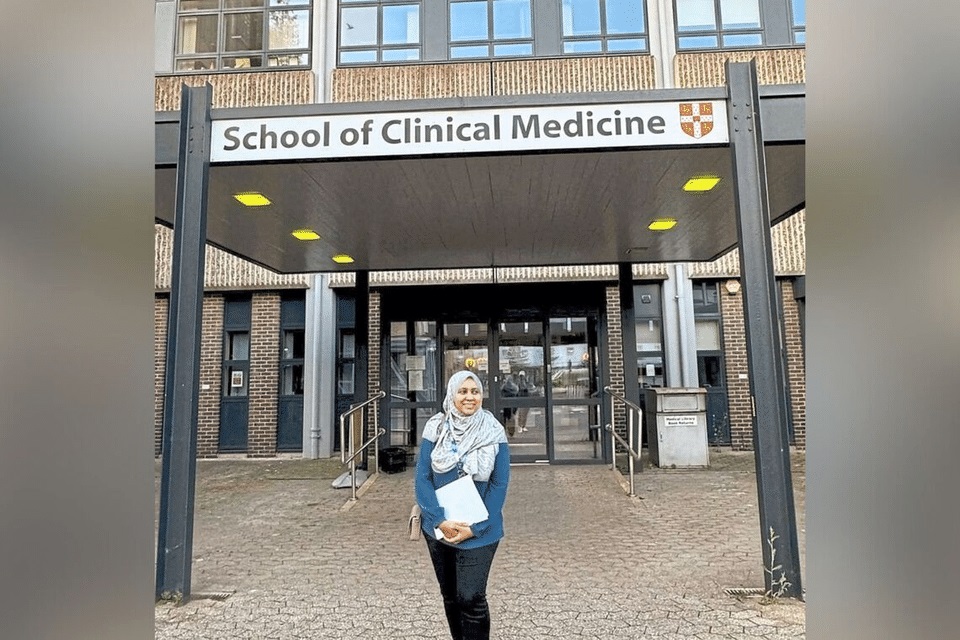01. October 2025
Admin
Malaysian Lecturer Reportedly Completes Cambridge PhD with Zero Corrections

A Malaysian academic, Dr Hanis Hidayu Kasim — a medical lecturer associated with Universiti Sains Islam Malaysia (USIM) — has been reported to have passed her PhD viva at the University of Cambridge with **no required corrections** to her thesis, an achievement that is described as rare in doctoral examinations. The thesis reportedly focuses on lipidomics and infant metabolic outcomes.
Quick Insight: Passing a PhD viva **without corrections** is uncommon — most examiners request at least minor edits. Cambridge’s regulations show that examiners normally recommend amendments, and candidates are commonly required to submit corrected versions within a set timeframe.
1. What the Reports Say
• According to press coverage, Dr Hanis completed a doctorate at Cambridge in the area of lipidomics, studying how prematurity affects infant metabolism and glucose regulation from birth to one year.
• Local and regional outlets and social posts amplified the story shortly after the announcement. Some reposts reproduce the same facts about the zero-corrections outcome and her institutional affiliation.
2. How Cambridge PhD Examination & Corrections Normally Work
• At Cambridge (as at many UK universities), after the viva the examiners deliver a formal outcome: pass, pass with minor corrections, pass with major corrections, or fail. Candidates who are asked to correct the thesis are given a deadline to submit the revised version.
• Receiving **no corrections** means examiners judged the submitted thesis and viva satisfactory as-is — a positive but unusual outcome. Online academic forums recount that while possible, zero-corrections vivas are rare and often celebrated by new graduates.
3. Verification & Caveats
• The primary news story is from *The Straits Times*; I could not find a matching official Cambridge University press release or the thesis record in publicly accessible Cambridge databases at the time of checking. That doesn’t invalidate the report, but it does mean readers who need primary confirmation should check Cambridge or the candidate’s institutional channels.
• Regional reposts and social media amplify the report — useful for context but not a substitute for university confirmation.
Final Thoughts
If verified by Cambridge or by a formal university statement from the candidate’s employer, completing a Cambridge doctorate with zero corrections is a noteworthy academic milestone — especially for early-career researchers in fields like lipidomics. For publication or citation on your site, consider linking to the original *Straits Times* piece and (if possible) seeking confirmation from Cambridge, USIM, or the researcher’s public profile to make the record definitive.
